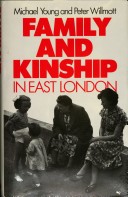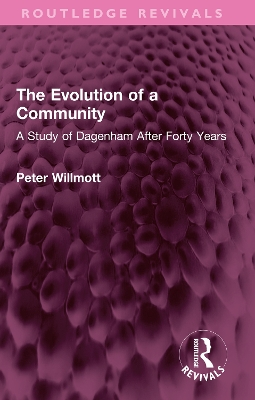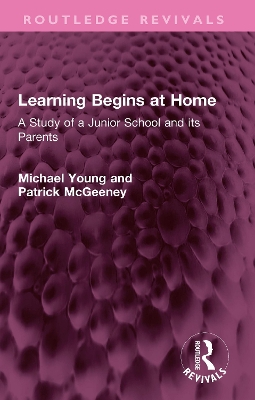Routledge Revivals
3 total works
In earlier studies, Peter Willmott and other investigators had documented the social problems of new housing estates – the loneliness, the tensions, the disruption of family and neighbourhood ties. But how far are such troubles transitory? What kind of life would develop in communities like these when time had...
Read moreIn earlier studies, Peter Willmott and other investigators had documented the social problems of new housing estates – the loneliness, the tensions, the disruption of family and neighbourhood ties. But how far are such troubles transitory? What kind of life would develop in communities like these when time had rubbed off the newness?
Originally published in 1963, in search of an answer, Peter Willmott went to Dagenham in Essex, where forty years before the London County Council began to build a giant estate to rehouse people from the East End of London. His study – of a new estate that had now become an old one – throws light on the long-term effects of this kind of migration. He found at Dagenham, most strikingly, that a way of life very similar to a ‘traditional’ working-class community had grown up. In this book he discusses the similarities and differences, and shows the influences which had worked for and against this development. After a sketch of the estate’s history, he traces the relationships of the people of Dagenham with relatives, friends and neighbours, and then examines their attitudes to each other, to politics and to social class.
His conclusions were not only relevant to housing and town planning policy, but provided insight into the meaning of social class in contemporary Britain at the time.
First published in 1968, Learning Begins at Home records an attempt by two researchers to initiate and assess an innovation in a school in a working-class neighbourhood. The influence of parents upon children’s achievement is a platitude of education. The vital question is whether schools can become centres for...
Read moreFirst published in 1968, Learning Begins at Home records an attempt by two researchers to initiate and assess an innovation in a school in a working-class neighbourhood. The influence of parents upon children’s achievement is a platitude of education. The vital question is whether schools can become centres for education for adults as well as children, influencing the parents directly, and the children indirectly through the parents. The research reported in this book suggests that it would be worthwhile for teachers to give more of their time to cooperation with parents. This book will be of interest to students of education and sociology.



